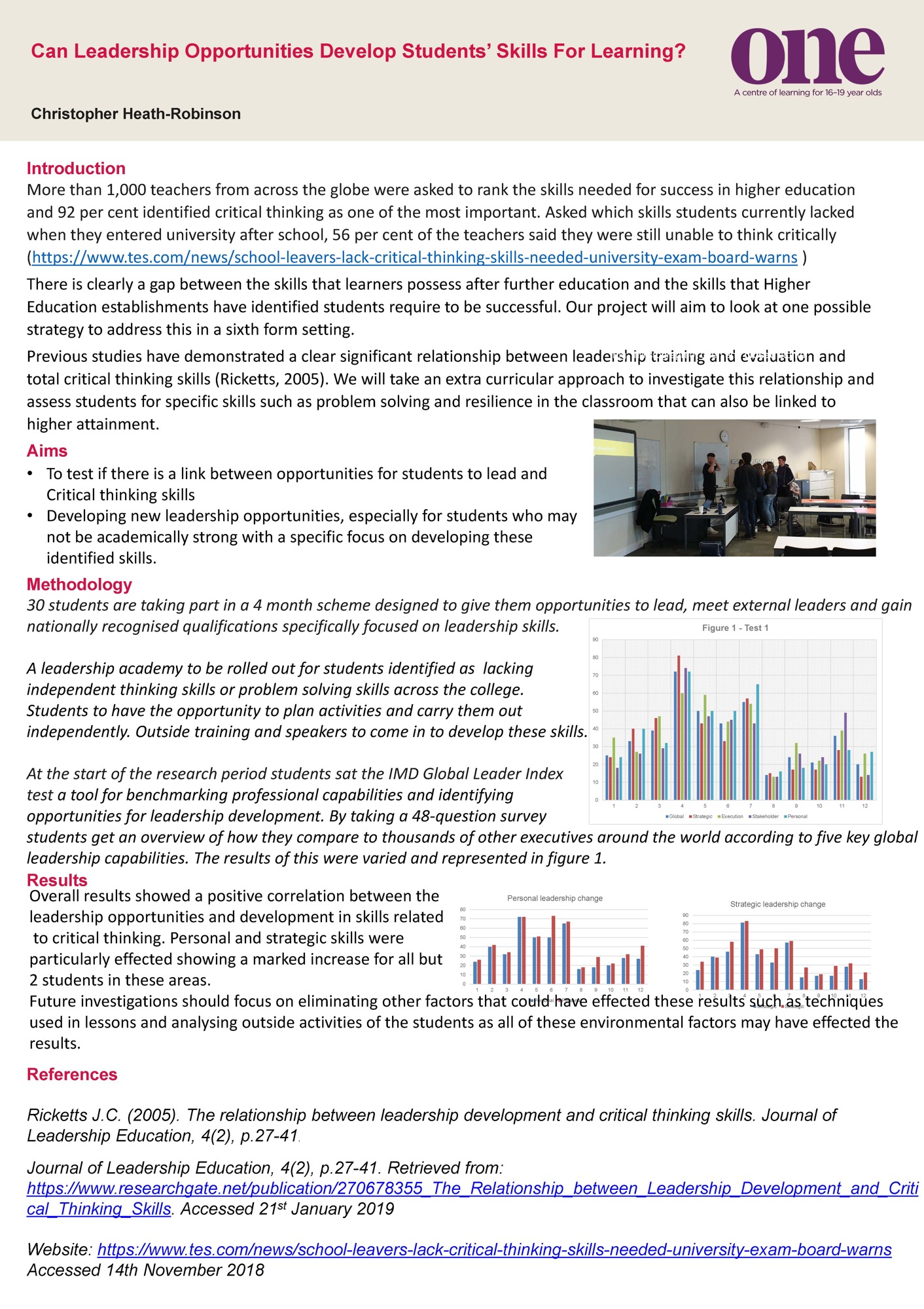Can Leadership Opportunities Develop Students' Skills for Learning?
More than 1,000 teachers from across the globe were asked to rank the skills needed for success in higher education and 92 per cent identified critical thinking as one of the most important. Asked which skills students currently lacked when they entered university after school, 56 per cent of the teachers said they were still unable to think critically (https://www.tes.com/news/school-leavers-lack-critical-thinking-skills-needed-university-exam-board-warns )
There is clearly a gap between the skills that learners possess after further education and the skills that Higher Education establishments have identified students require to be successful. Our project will aim to look at one possible strategy to address this in a sixth form setting.
Previous studies have demonstrated a clear significant relationship between leadership training and evaluation and total critical thinking skills (Ricketts, 2005). We will take an extra curricular approach to investigate this relationship and assess students for specific skills such as problem solving and resilience in the classroom that can also be linked to higher attainment.
A Leadership Academy will be set up allowing students to apply for a position within the focus group from across the broad spectrum of subjects that One offers or from teachers selecting students identified as lacking critically thinking skills in their lessons. The successful students will then be set a programme of opportunities for internal and external training, all with a focus on developing specific critical thinking skills. The project will culminate in an end of year event which the group of students will use their new skills to organise a college wide event aimed at inviting primary school students into One.
The relationship between the leadership opportunity and critical thinking skills will be assessed in three ways, students’ self-assessment as well as standardised teacher assessments before and after the leadership development programme.
Ricketts J.C. (2005). The relationship between leadership development and crititical thinking skills. Journal of Leadership Education, 4(2), p.27-41.
Chris Heath-Robinson (Research Champion, christopher.Heath@suffolkone.ac.uk)
Project update - February 2019
Students have signed up for the leadership academy and this will commence after February half term.
Students have so far completed a baseline test (Cambridge university exam) to assess resilience and other skills, which will be used as a comparison to a repeat test completed once these students have taken part in the leadership academy.
Chris Heath-Robinson

Project update - May 2019
The leadership academy has now been established with 30 students taking part in the pilot scheme. Students from various subject areas from across the college were asked to apply for the position and give a reason for why they wanted to be part of the research project.
The first task students were asked to do was to sit an aptitude test which assessed their skills in 5 key leadership areas, Global management, Strategy, Execution, Stakeholder relationship and personal management. The test, set up by the Institute for Management Development, can be used to assess specific areas of need to develop the students management skills. From that test there has been a program of training developed for the students to take part in.
So far as part of the scheme students have taken part and become qualified in 1st aid training, attended a talk from the University of Suffolk on careers and managements and been mentored by business industry experts with a Q&A style session. Future training will include talks on apprenticeships, skills required in the world of work, talks from previous One students and students taking part in the Raising the Bar event for primary schools.
At the end of the current program students will then resit the IMD aptitude test to see which, if any, of their management skills have improved and asked for feedback on whether they think the
Research Poster







